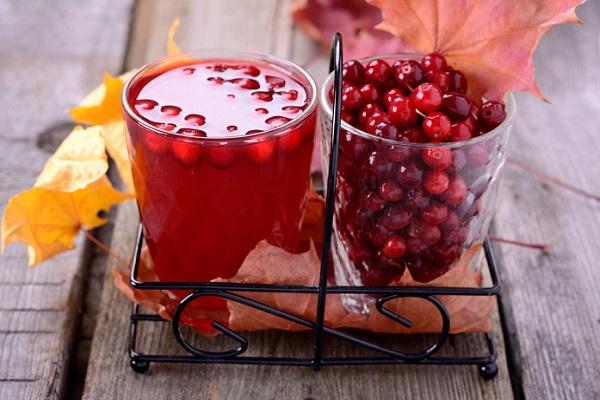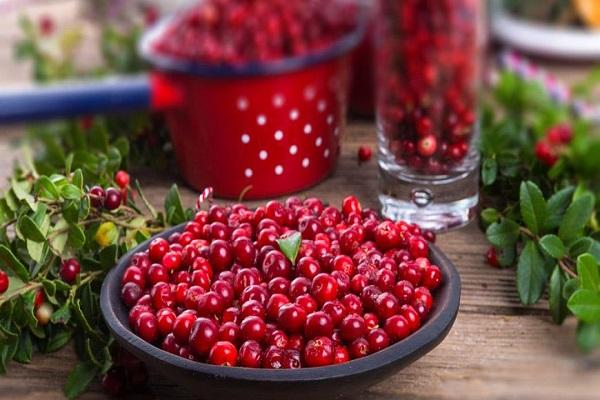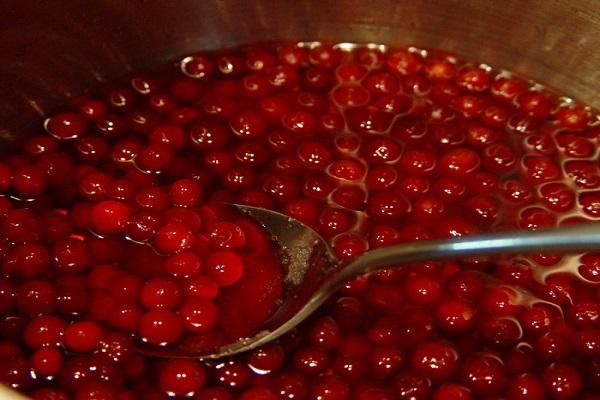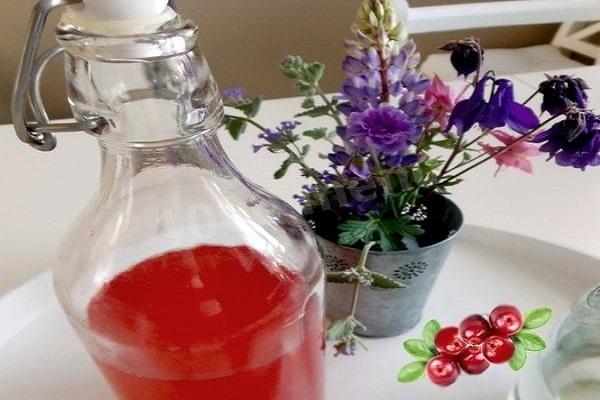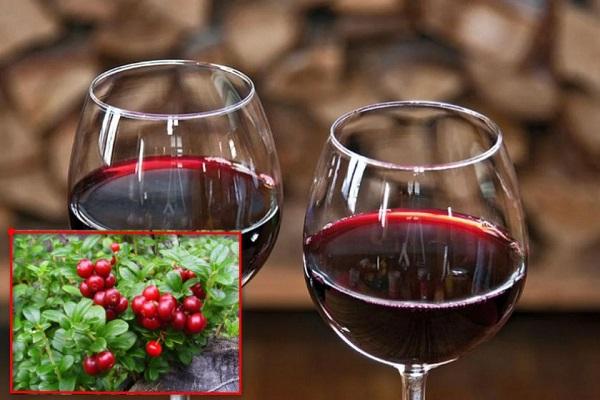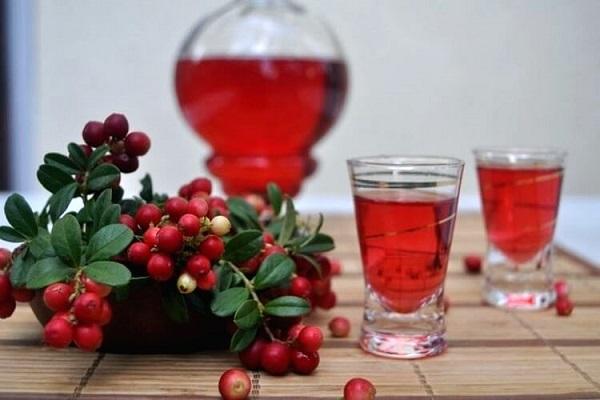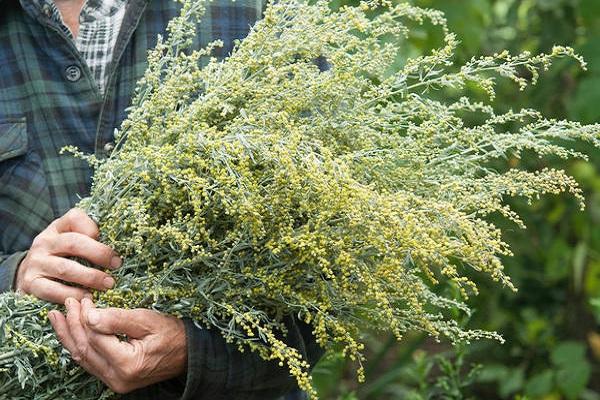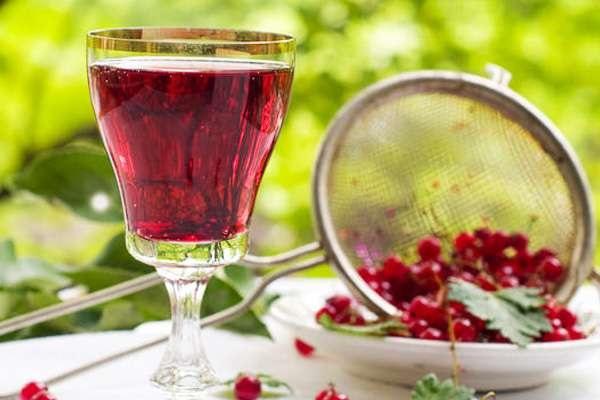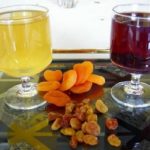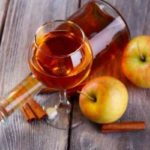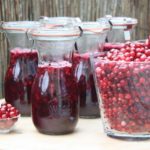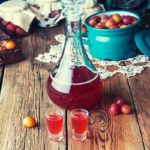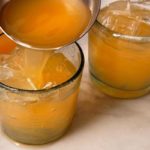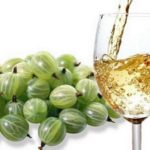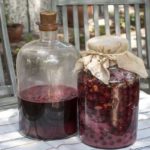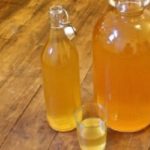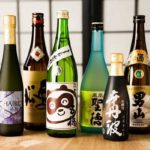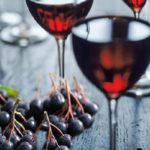Homemade wine from red lingonberries cannot be compared with any other alcoholic drink. This product has a tart, sweet and sour taste. Lovers of homemade wines are delighted by the ruby color of the drink. Its strength is 10-12 degrees. Homemade sweet lingonberry wine is served with desserts or pastries. The recommended dose is no more than 50-100 grams at lunch.
Manufacturing Features
Aromatic and tasty wine is made from small, slightly sour, tart lingonberries. The northern peoples call the red-colored drink taiga blood. This product contains many useful substances. It is used as an alternative treatment for many diseases.
Lingonberry wine has a sweet-sour, slightly tart taste and a ruby color. The product is made from berries purchased in the fall at the market or supermarket.
Lingonberry drink is made from lingonberries and sugar. It will not be possible to make wine without granulated sugar; the wort may not ferment. Instead of sugar, you can take honey. To make the drink, only ripe and fresh berries are taken, without rot, mold or damage. It is advisable to sort out the lingonberries, chop them, but do not wash them. There are fungi on the surface of the berries that will help the wort to ferment.
Wine is made in a 3-liter jar or in a large glass bottle. Before making the drink, the containers are washed and rinsed with boiling water. In addition to lingonberries and sugar, to make lingonberry wine you will need pure spring or settled water, as well as wine yeast (you can buy it in a supermarket or order it online).
Beneficial features
Lingonberry is a small red berry that grows in forests and peat bogs. It contains a huge amount of vitamin C, beta-carotene, and a whole storehouse of various microelements. The beneficial substances of lingonberries are preserved in lingonberry wine.
Northern peoples call it the berry of immortality. Lingonberries are known for their antioxidant properties. It is also used as an anti-inflammatory, antipyretic and diuretic.
Lingonberry wine in moderate quantities normalizes blood pressure and reduces the risk of pathologies of the cardiovascular system.This drink also improves memory, vision, and kidney function. It is useful for arthritis, obesity, and helps reduce blood cholesterol. Wine is drunk as a preventive measure against cancer, colds and diabetes.
In winter, such a drink will compensate for the lack of vitamins.
How to make lingonberry wine at home
Lingonberry wine is made from lingonberries alone or other berries and herbs are added to it. Various additives affect the taste of the drink. The technology for making lingonberry wine is very simple. Usually the drink is made in a 3-liter jar.
The lingonberries are carefully sorted and poured into a container. You can pre-grind it in a blender. Then the berries are covered with sugar, water at room temperature is poured in, and wine yeast is added.
The jar is covered with gauze and left warm for a week so that the wine begins to ferment. When foam appears, close the jar with a lid with a gas outlet. Instead of a water seal with a gas outlet tube placed in a container of water, you can put a rubber glove on the jar. True, her fingers need to be pierced with a needle so that the air can easily escape.
The wine should ferment in a warm place for at least a month. The end of fermentation is indicated by a deflated glove. The liquid is then filtered and placed in the refrigerator to clarify.
The finished drink is bottled.
Classic recipe
A simple recipe for lingonberry wine for a 3-liter jar:
- 1 kg of lingonberries;
- 505-905 g sugar;
- 2 liters of water at room temperature;
- 5-10 g wine yeast.
How to cook:
- the berries are poured into a jar and covered with sugar;
- pour in water;
- add wine yeast;
- cover the jar with gauze and leave for a week at a temperature of +25 degrees Celsius;
- when the wort has fermented, install a water seal or put a rubber glove on the jar;
- the wort is left to ferment at a temperature of +20...+25 degrees Celsius;
- after 30 days, filter the liquid;
- The young wine is placed in the refrigerator to clarify (the sediment should fall to the bottom of the jar);
- the finished drink is bottled and sent to a cool cellar for storage;
- the wine will be ready after 2-3 months.
Option with honey and cherry leaves
Ingredients for a 3-liter jar:
- 1 kg of lingonberries;
- 205 g honey;
- 305 g granulated sugar;
- 2 liters of water;
- 10 cherry leaves;
- 5-10 g wine yeast.
With herbs
Ingredients for a 3-liter container:
- 1 kg of lingonberries;
- 505 g granulated sugar;
- 100 g of any herbs (yarrow, angelica, sweet clover, calamus, snakehead, cephalophora);
- 5-10 g wine yeast;
- 2 liters of liquid.
With cherry
Ingredients for a 3-liter jar:
- 205 g cherries;
- 305 g lingonberries;
- 0.5 cups raisins;
- 0.5 kg granulated sugar;
- 5-10 g wine yeast;
- 2 liters of water.
With wormwood
Recipe for a 3-liter container:
- 1 kg of berries;
- 5 wormwood leaves;
- 0.5 kg sugar;
- 5-10 g wine yeast;
- 2 liters of water.
Fortified wine
Composition for a 3-liter container:
- 1 kg of lingonberries;
- 505 g granulated sugar;
- 5-10 g wine yeast;
- 2 liters of water;
- 255 g of vodka or cognac is added to the finished product before bottling.
Contraindications for use
Lingonberry wine can lower blood pressure, so people suffering from hypotension should not consume it in excess. This drink is contraindicated for stomach and liver diseases. Wine should not be drunk if you have an ulcer or gastritis with high acidity. Alcohol should not be consumed by pregnant or breastfeeding women. Lingonberry wine is prohibited from being given to persons under 18 years of age.
Terms and conditions of storage
It is better to store finished wine, bottled, at a temperature of +10...+12 degrees Celsius.If the room is too warm, it may turn sour. It is better to place bottles of lingonberry drink on the bottom shelf or in the side door of the refrigerator.
The longer the wine sits, the tastier and richer its taste will be. A properly prepared lingonberry drink with a low alcohol content can stand in a cool pantry without turning sour for about 2 years.

